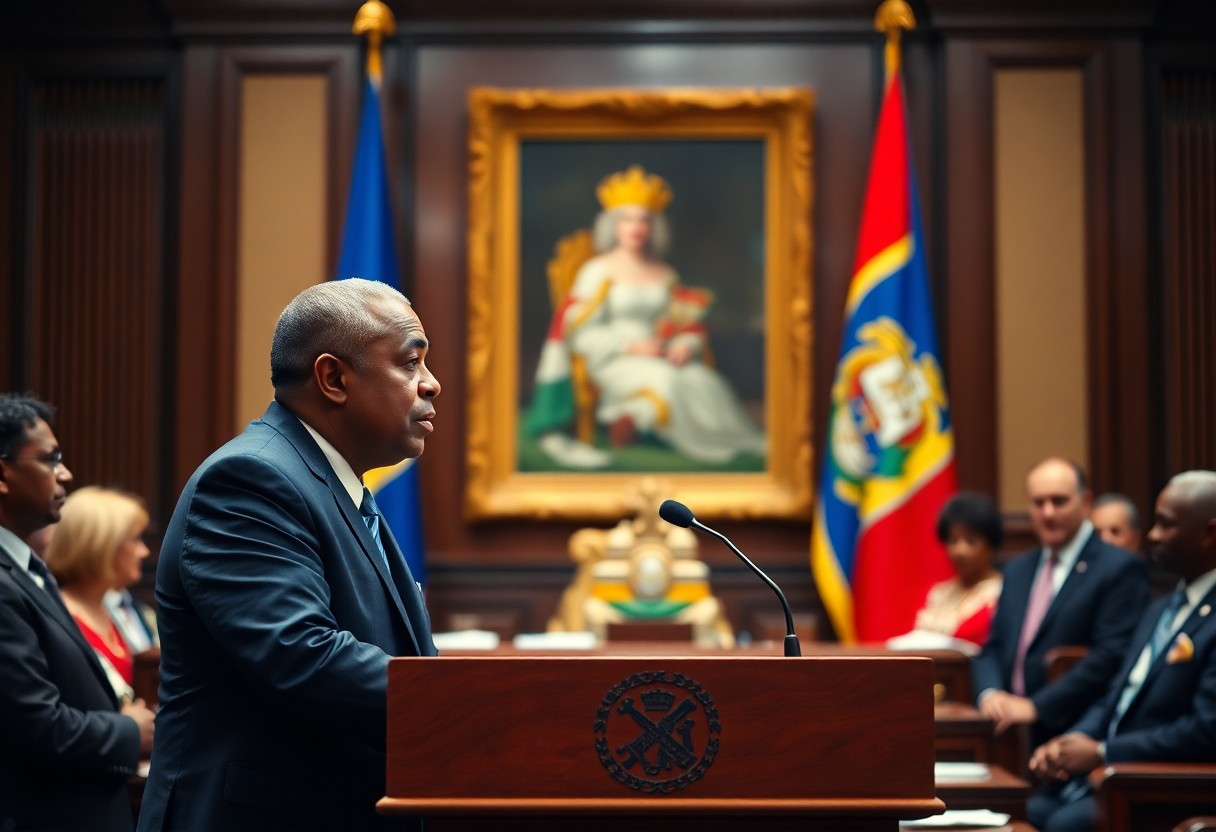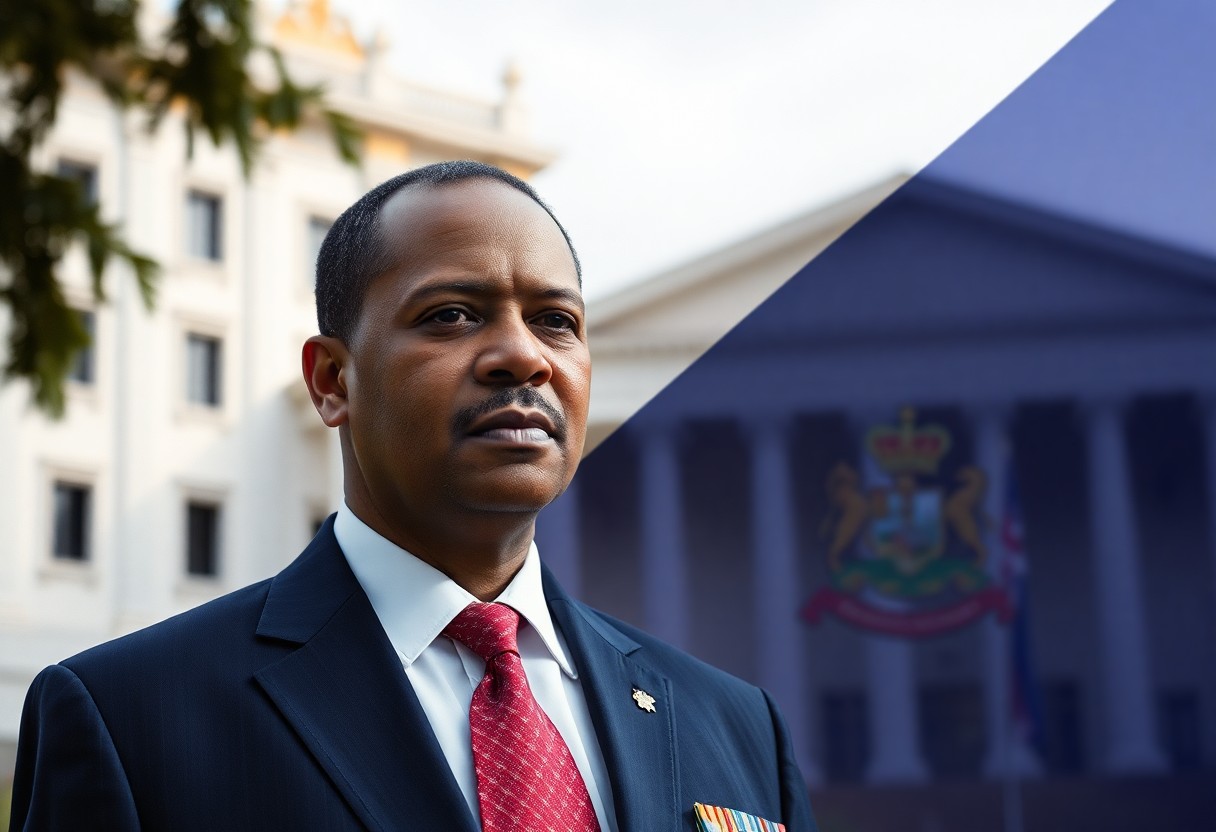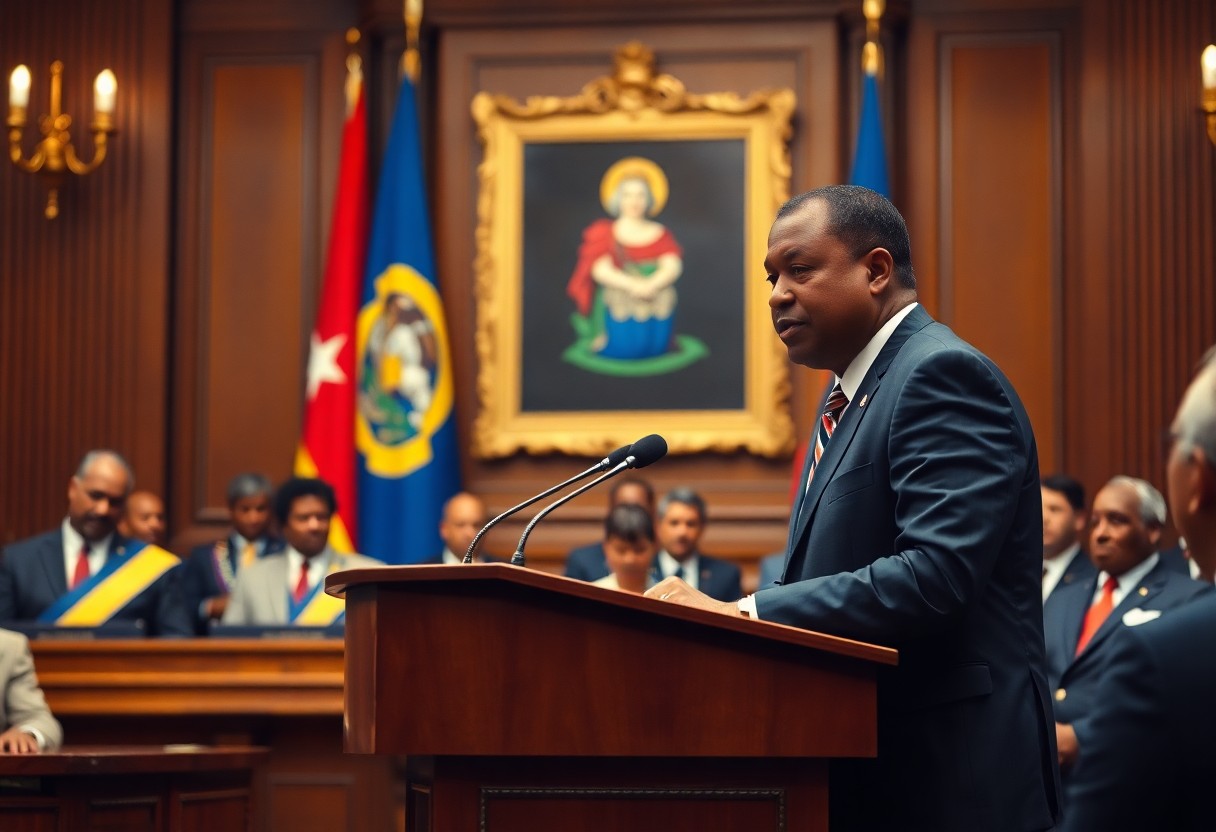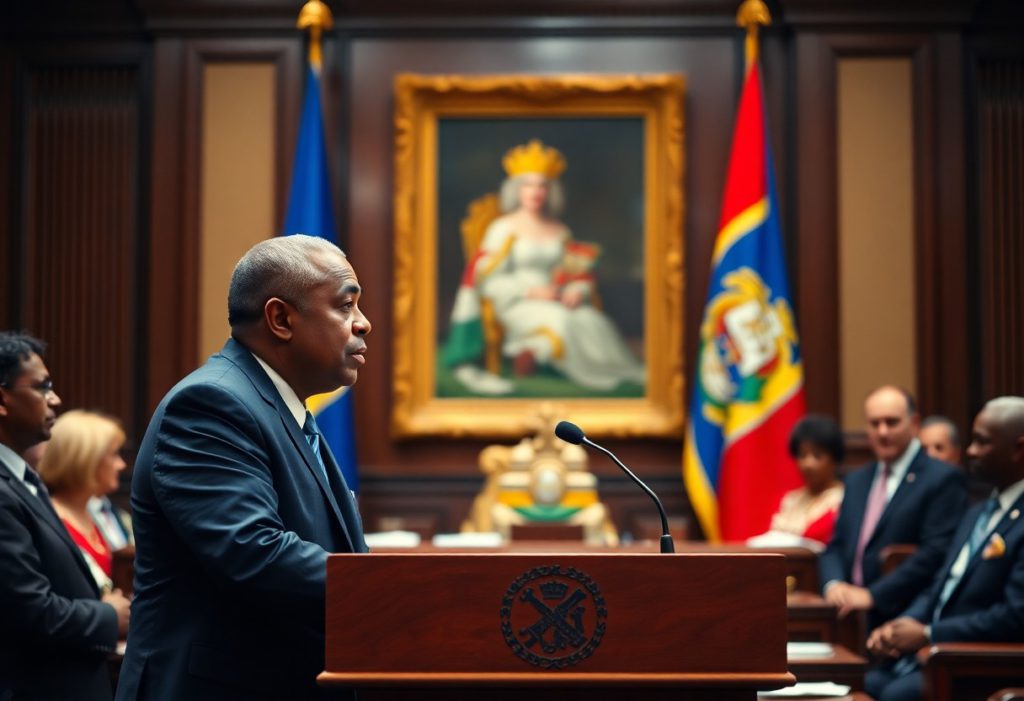Belize showcases a captivating political landscape characterized by its intricacies and nuances. As a parliamentary democracy, Belize operates within a constitutional framework where the participation of elected representatives is essential for effective governance. While Belize remains a Commonwealth realm with King Charles III as its ceremonial head of state, the true political power resides with the Prime Minister and the National Assembly. This distinctive governmental arrangement blends traditional British parliamentary practices with modern democratic values, resulting in a unique political environment that mirrors Belize’s rich cultural and historical heritage.
Exploring Belize’s Constitutional Framework for Effective Governance and Representation
The constitutional framework of Belize serves as the foundational pillar for its parliamentary democracy within the Commonwealth. This system is meticulously crafted to harmonize the principles of democratic governance with the institutional legacies inherited from British colonialism. The constitution, adopted in 1981 after Belize’s independence, explicitly outlines the fundamental political organization of the nation, clarifying the functions and relationships between the various branches of government. This well-structured framework guarantees that Belizean governance remains both representative and accountable to its citizens, ensuring their voices are heard in the political arena.
Examining the Monarch’s Role as Ceremonial Head of State in Belize
In accordance with the constitutional design, the British monarch assumes the role of Belize’s ceremonial head of state. Although King Charles III serves as the nominal sovereign, he is represented locally by a Governor-General appointed on ministerial advice. This representative’s responsibilities are largely ceremonial, encompassing formal governmental events and a variety of constitutional duties essential to the nation’s governance. This arrangement not only highlights the historical connections between Belize and the British monarchy but also facilitates the growth and functioning of local governance.
The Prime Minister: Central Figure of Political Leadership in Belize
Within Belize’s political framework, the Prime Minister holds a position of executive authority and political leadership. Generally, this role is filled by the leader of the party that holds the majority in the House of Representatives. The Prime Minister is tasked with steering national policy, supervising government operations, and representing Belize on the international stage. Their influence is crucial in shaping the nation’s political direction and overall landscape.
Clearly defined constitutional provisions delineate the extensive responsibilities that the Prime Minister bears in Belize’s governance. This role encompasses critical decision-making across diverse governmental sectors, underscoring the significance of effective leadership. The Prime Minister leads the Cabinet, proposes legislative initiatives, oversees national economic strategies, and serves as the primary political spokesperson for the country. While their authority is significant, it is carefully balanced by parliamentary oversight and constitutional limitations, ensuring a system of checks and balances.

Analyzing the Impact of the Prime Minister on Governance in Belize
The Prime Minister of Belize serves not only as the head of government but also possesses substantial political influence and authority. As the leader of the majority party within the parliament, they play a pivotal role in steering national policy, representing Belize internationally, and overseeing the executive branch of government. Their position is indispensable for ensuring effective governance and facilitating national decision-making processes that resonate with the populace.
Diving into the Extensive Powers Held by the Prime Minister
To comprehend the political framework of Belize thoroughly, one must recognize that the Prime Minister wields significant constitutional powers that greatly influence the nation’s political landscape. This includes the authority to appoint cabinet ministers, advocate for new legislation, shape government policy, and represent Belize in various international arenas. Such extensive influence positions the Prime Minister as a central figure in Belize’s governance, with the capacity to craft the country’s future trajectory.
Understanding the Election Process for Appointing the Prime Minister
Typically, candidates for ministerial positions arise through party-based electoral processes. Often, prospective Prime Ministers lead their respective political parties and successfully secure parliamentary seats. Their selection depends on their party’s performance during national elections, reflecting the core democratic tenets that underpin Belize’s governance structure.
The election process in Belize encapsulates complex political dynamics crucial for grasping its governance. Candidates must navigate numerous challenges, including local constituency elections, party nominations, and national voting trends. Generally, the leader of the party that secures the most parliamentary seats ascends to the position of Prime Minister, illustrating the direct connection between electoral success and governmental leadership.

Understanding the Bicameral Parliamentary Structure of Belize
Belize functions under a parliamentary democratic model, adopting a Westminster-style governmental structure rooted in British colonial history. The bicameral legislature consists of two chambers: the House of Representatives and the Senate, which collectively form the primary legislative body responsible for drafting and enacting national laws.
Exploring the Key Role of the House of Representatives in Governance
The House of Representatives serves an essential function in democratic representation, consisting of 31 elected members who are chosen through constituency-based elections. These representatives are directly elected by the citizens and act as the primary democratic voice within Belize’s political system. Each member advocates for a specific geographic region, ensuring that the diverse needs and interests of the populace are adequately represented in legislative discussions.
Examining the Structure and Responsibilities of the Senate
In contrast to the House of Representatives, the Senate operates as an appointed upper chamber with 12 nominated members. These senators are not directly elected; instead, they are appointed by the Governor-General based on recommendations from various political and social sectors. This system introduces a broader perspective on national legislation, enriching the legislative process with diverse insights and expertise.
This legislative body plays a critical advisory role in Belize’s governance. Senators are typically selected to represent a wide array of interests, including business, labor, religious organizations, and civil society. Their primary responsibility is to review and potentially amend legislation passed by the House of Representatives, thereby ensuring a thorough and balanced approach to lawmaking that incorporates multiple societal perspectives.

Unraveling Common Misconceptions about Belize’s Political System
Despite prevalent beliefs, Belize’s governmental structure is far more intricate than many might assume. Widespread misunderstandings regarding political leadership contribute to confusion surrounding the true nature of governance in the country. The reality of Belize’s political system diverges significantly from surface-level perceptions, revealing nuanced layers of power and governance that merit deeper investigation.
Clarifying the Difference Between “President” and “Prime Minister” in Belize
Given that many countries operate under presidential systems, there is a tendency to erroneously assume that Belize follows a similar model. However, it is crucial to recognize that Belize operates under a parliamentary system, where the Prime Minister serves as the head of government rather than a president. Understanding this distinction is vital for grasping the structure of political leadership, as the Prime Minister is elected from the majority party in parliament, contrasting with a directly elected presidential figure.
Delving into the Complex Political System of Belize
A deeper exploration of Belize’s political framework uncovers the intricate interactions among constitutional monarchy, parliamentary democracy, and local governance. While the British monarch remains the official head of state, daily governance is conducted by elected officials through a representative democratic system, which emphasizes local accountability and responsiveness.
Common misconceptions surrounding Belize’s political structure often fail to acknowledge the intricate balance of power among local institutions. It may surprise you to learn that the system comprises multiple governance levels, including a national parliament, local councils, and the influence of the British monarchy represented by a Governor-General. Gaining a comprehensive understanding of this nuanced political landscape requires an appreciation that extends beyond simplistic categorizations of governance styles.
Understanding the Dynamics of Governance and Political Relationships in Belize
It’s essential to recognize that Belize operates as a parliamentary democracy within a constitutional monarchy, where the British monarch serves as the ceremonial head of state. Your understanding of the political landscape is significantly influenced by the Prime Minister’s considerable authority, who leads the government and represents the majority party in the National Assembly. While the political system appears stable, potential tensions among political parties can create complex governance challenges that affect national decision-making processes. Awareness of these dynamics will deepen your appreciation of the delicate balance of power in this Central American nation, where historical influences and democratic practices continue to shape its political trajectory.
Tracing the Historical Development of Belize’s Political Landscape
The political landscape of Belize has evolved from a rich and multifaceted colonial history, where British colonial rule profoundly shaped its governance structure. You can trace the nation’s political evolution, transitioning from a British Honduras colony to an independent state in 1981. This transformative period marks a pivotal moment in understanding Belize’s governmental framework. Your exploration will uncover how British parliamentary traditions have significantly influenced Belize’s current political system, crafting a unique fusion of Westminster-style democracy and local governance that continues to define the country’s political identity today.
Essential Insights into Belize’s Political Structure and Governance
In summary, Belize functions as a parliamentary democracy within the Commonwealth realm, where the Prime Minister exercises primary executive authority. While Queen Elizabeth II historically served as the head of state, the current monarch, King Charles III, maintains a largely ceremonial role. Understanding Belize’s governance revolves around the National Assembly, comprising elected representatives who draft and enact laws. The Prime Minister, usually the leader of the majority party, effectively governs the country, making significant decisions that shape Belize’s political landscape. This framework successfully balances democratic representation with the principles of constitutional monarchy, ensuring a stable political environment.
Common Questions About Belize’s Political System Answered
What Are the Core Functions of Belize’s Political System?
Belize operates as a parliamentary democracy within the Commonwealth realm. The Prime Minister acts as the head of government, leading the executive branch. The Parliament consists of two chambers: the House of Representatives (made up of elected members) and the Senate (comprised of appointed members). While Queen Elizabeth II historically served as the head of state, King Charles III currently fulfills this ceremonial role, represented locally by a Governor-General.
Who Currently Leads Belize, and How Are National Leaders Selected?
Prime Minister Johnny Briceño leads Belize as the head of the People’s United Party (PUP). National leaders are chosen through democratic elections, where citizens cast votes for representatives in the House of Representatives. The political party that secures the majority of seats typically forms the government, and its leader becomes the Prime Minister. Elections are held every five years, ensuring ongoing democratic engagement.
What Legislative Powers Does the Belizean Parliament Hold?
The Belizean Parliament possesses significant legislative authority. The House of Representatives is responsible for drafting, debating, and passing laws that impact national policy. Members propose legislation, approve national budgets, and exercise oversight over government operations. The Senate reviews proposed laws and can recommend modifications. Both chambers play vital roles in upholding democratic processes and representing the interests of Belizean citizens.
The Article Who Really Runs Belize? The Prime Minister, Parliament, and Monarchy Explained appeared first on Belize Travel Guide
The Article Who Runs Belize? Insights on the Prime Minister and Government Was Found On https://limitsofstrategy.com



Your exploration of Belize’s parliamentary democracy highlights some essential points about the complexities of governance in post-colonial states. However, I wonder how effectively the current framework truly allows for local representation beyond mere ceremony. The duality of retaining a constitutional tie to the British monarchy while trying to navigate modern democratic values often leads to tensions, especially in marginalized communities that feel overlooked in the decision-making process.
You bring up a crucial point about the complexities of local representation in Belize’s governance. The constitutional tie to the British monarchy definitely complicates the landscape. On one hand, it provides a sense of stability and historical continuity for some; on the other, it can feel anachronistic to marginalized communities who are desperate for real engagement in decision-making.